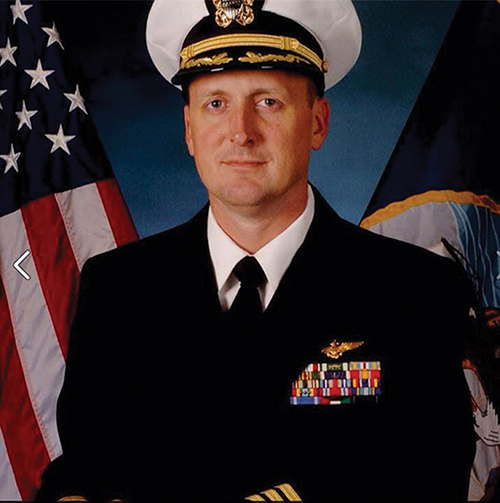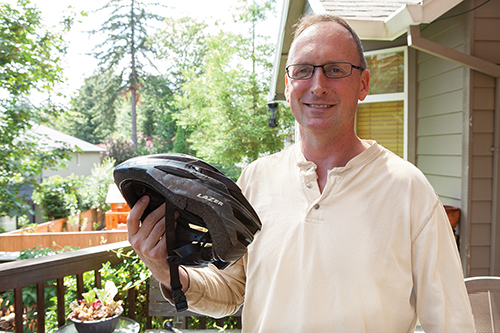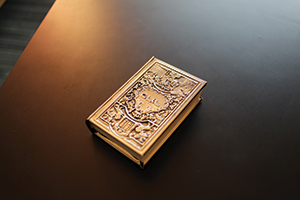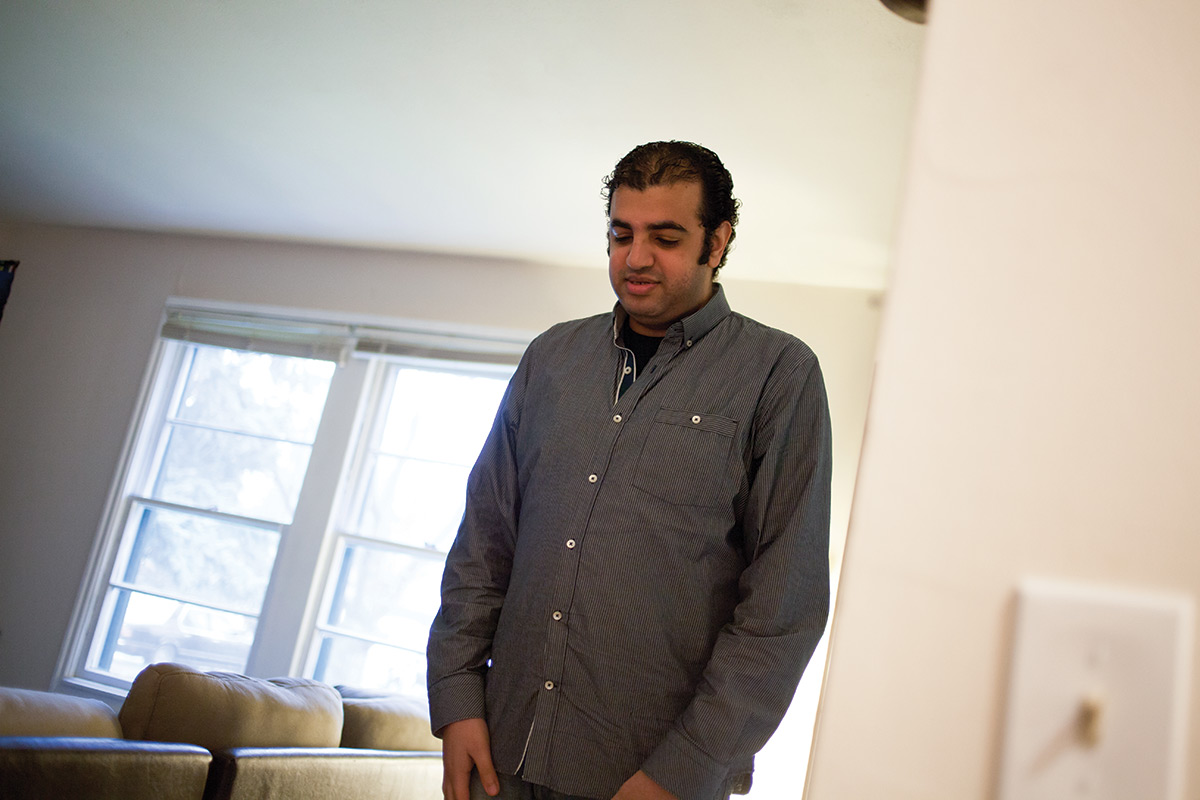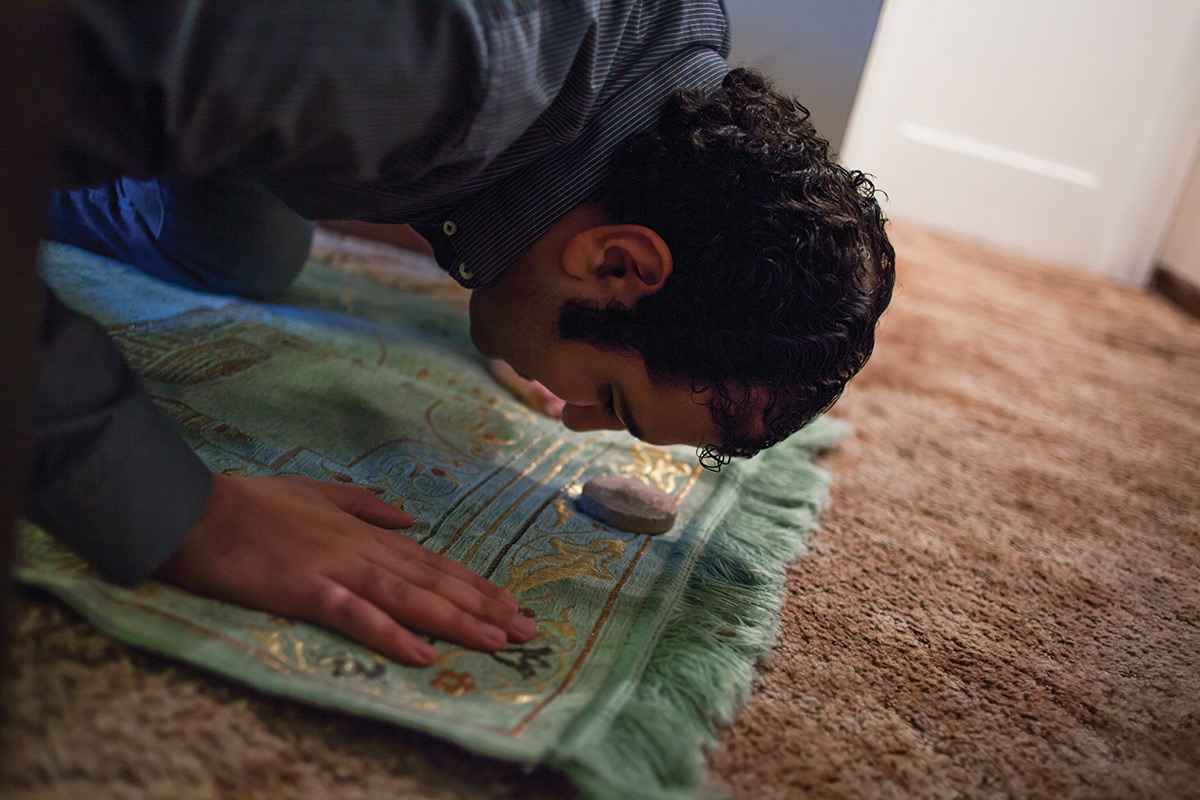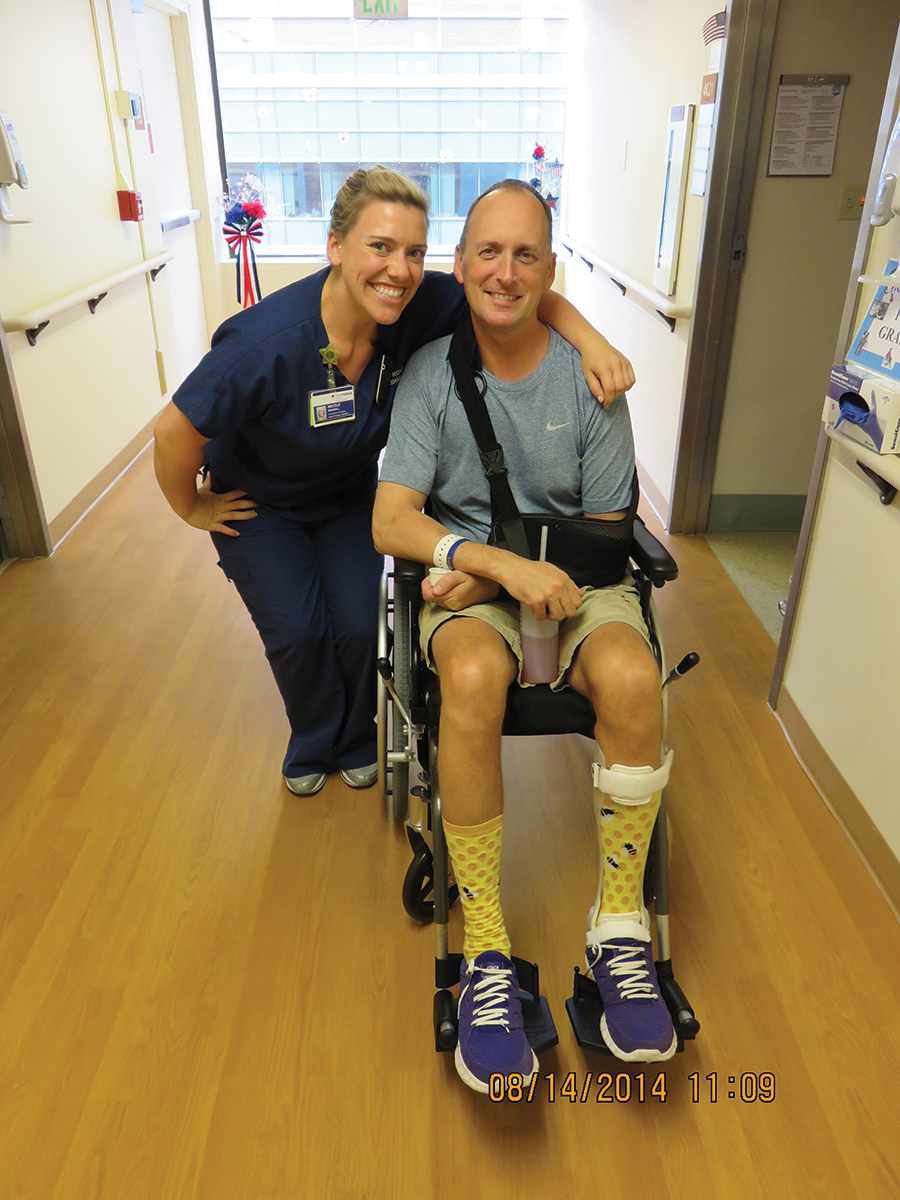Spirit of Survival
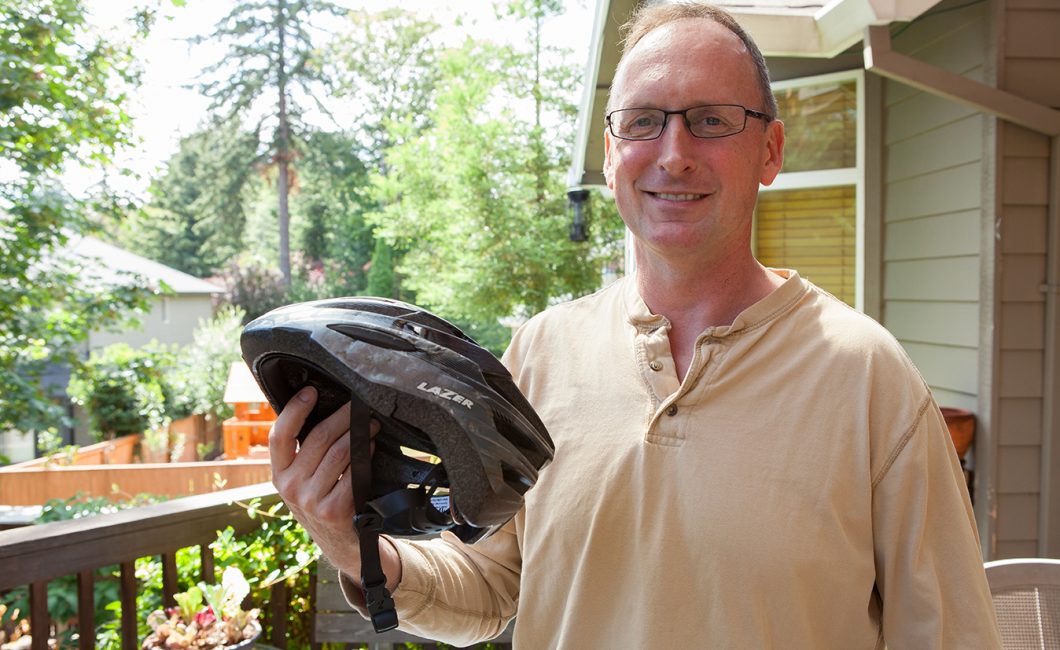
Doug Keller’s father may not have been the most gentle man, but he was an inspiring one.
Fred Keller was just an adolescent when Japan invaded the Dutch East Indies, now Indonesia.
As descendants of the early European colonists there, Fred and his family were imprisoned, put in concentration camps where they were starved and tortured for years before being liberated by the Allied Forces.
Fred always remembered the U.S. Marines as his rescuers — and he set out to become an American, devoted to the opportunity and freedom he saw in the country.
“He had a great respect for this country that would sacrifice its young people to help someone from another country without any hope of compensation,” Doug Keller MAT ’14 wrote in a journal. “His life goal was to move to this amazing country full of amazing people.”
Eventually he did so, by way of Holland, New Zealand, then Canada.
Keller, born in New Zealand, grew up in Oregon, attended Beaverton’s Sunset High School and then the Naval Academy, became a Navy helicopter pilot, ran for U.S. Congress, and returned to school at Pacific University for a master’s degree and a civilian career as a teacher.
As life has thrown him his own hardships, Keller has remembered his father’s tenacious spirit.
“Everything I was taught was to keep trying, remain optimistic, and never, never give up,” he wrote.
Keller was in fourth grade when he picked his career goal.
“The teacher was going around the classroom asking us our career intentions, and we were thinking up crazy stuff,” he said. “I had seen pictures, and I wanted to fly off ships.”
His father mapped out the steps that would allow Keller to reach his goal.
He made the grades and, in the meantime, excelled at high school waterpolo, eventually earning a place at the Olympic Training Facility, where he caught the eye of a Naval Academy coach.
“They can’t recruit you as an athlete, but if you have the grades, they can put in a word,” he said. And so, he went to Annapolis, then to flight school in Pensacola, Fla., to become a helicopter pilot.
“(In school) I was thinking airplanes, not helicopters,” he said. “But it was like an addictive drug. Once I started flying helicopters, I didn’t want to fly anything else.”
His first post was in the Gulf of Mexico, helping to identify drug smuggling ships and notify the Coast Guard of their locations. Then, he cruised around the horn of South America, working with foreign navies along the way.
He was in the Middle East in 1991, when Saddam Hussein invaded Kuwait, and served as a part of Desert Shield, the precursor to Desert Storm.
“We only had two battle groups there, and Saddam had the fourth largest army in the world. If he had wanted to, he could have marched through Saudi Arabia,” Keller said.
He participated in blockading shipments going into the Gulf of Aqaba bound for Iraq.
“That’s as dangerous as I got,” he said.
After Sept. 11, he served aboard the USS Nimitz, which supported operations in Iraq and Afghanistan, including support of Operation Enduring Freedom.
In 2000, he was aboard the USS Underwood when it ran aground in Egypt.
“The Navy doesn’t have much tolerance for ships that run aground,” he said.
"I have more empathy now. Everybody has a struggle. All these people look normal, but most aren't. Most are going through something."
But, he added, “Things don’t happen by accident.”
One port visit that the Underwood missed due to the grounding was in Yemen. The next ship to visit that port was the USS Cole, which was bombed in a terrorist attack there.
“That was a guided missile vessel. Ours was a frigate,” Keller said. “If it had been us, it would have broken our ship in half. We were fortunate we ran aground.”
Keller retired from the Navy in 2007 and went to work for Evergreen Aviation for a few years. He made a bid for U.S. Congress, in an attempt to oust then-Rep. David Wu, and he started coaching his daughter’s waterpolo team back at his alma mater at Sunset. He also used his GI Bil®l benefits to earn master’s degree, attending Pacific University to become a physics teacher.
But in July 2014, life threw Keller a curveball.
He was bicycling, training for a triathalon, when the accident happened. He doesn’t remember the particulars — though he has tried to piece together the events of the missing days and weeks in his memory — but he knows that LifeFlight carried him to the hospital, and that his heart had to be shocked back to action once along the way.
“I do remember hearing the familiar sound of the helicopter’s engine,” he later wrote in his recovery journal. “It was then that I realized things were serious.”
The brand new helmet his wife had just bought him likely saved his life, as he believes he fell off his bike head-first at 35 MPH, hitting the pavement hard.
He had a concussion and radial fractures around his left ear and eye socket. His collarbone, shoulder blade, and at least four ribs were broken. His carotid arteries were less than 50 percent open, and his right carotid had an aneurism forming.
On his second day in the hospital, he began having strokes, which forced a risky surgery.
“It’s a little disconcerting waking up at your own wake, which is what it seemed like, but seeing [my brother’s] face and everyone else’s concern made me once again say to myself that I have to fight this and survive,” Keller wrote later.
Even after his condition stabilized, he had months of rehabilitation in his future. He had to re-learn how to walk, how to control his body.
“I was this big strong dude, and suddenly I couldn’t do anything,” he said. “It changed me a lot.”
But he was intent not only to survive, but to recover.
When doctors asked him his goal, he said he wanted to be out of the rehab center by Aug. 15 so that he could coach the upcoming waterpolo season, and he wanted to be able to run the triathlon he’d been training for the following summer.
“I saw some were excited, like, ‘Let’s do this!’ Some were rolling their eyes,” he said. “People that have negative attitudes, I don’t want them around. It’s like an anchor.”
His family, his friends, and a team of occupational and physical therapists have helped him with each new step.
He did return to coaching in the 2014-2015 season, and both the boys’ and girls’ teams made the playoffs. And on Sept. 20, 2015, just over a year after the accident, Keller logged a 3:25:48 time at the Portland Triathlon, Olympic distance.
His journey, however, is not complete. He still spends hours each week in physical therapy, and as a result of the traumatic brain injury he suffered, his body doesn’t respond to his mind’s commands as well as he would like.
He is back to substitute teaching, but he gets frustrated that he can’t make it through a full-time teaching gig.
Still, he focuses on the positive.
He’s helped start a support group at his gym for TBI survivors, and he carries his smashed helmet in his car, always ready to offer a word of wisdom to cyclists without head protection.
He shares his recovery journal with those he meets who he feels might benefit from the consolation of another survivor’s story.
And, he tries to remember those lessons he learned from his father: “the importance of looking for the bright side of things and to tenaciously survive whatever the challenge.”
“I have more empathy now. Everybody has a struggle,” he said. “All these people look normal, but most aren’t. Most are going through something.”
“I started out asking, ‘Why did this have to happen?’” he wrote in his journal. “I don’t know if I’ll ever really understand, but now my question is, ‘Why did I survive?’
“Looking at the accident, I should now be dead. So many unlikely things had to come together for me to live, and now my hope is to continue the restoration process and become someone God can use to help comfort others in their struggles.” ■
GI Bill® is a registered trademark of the U.S. Department of Veterans Affairs (VA). More information about education benefits offered by VA is available at the official U.S. Government website.
This story first appeared in the Summer 2016 issue of Pacific magazine. For more stories, visit pacificu.edu/magazine.



